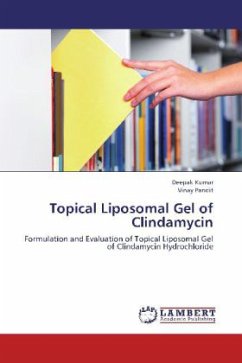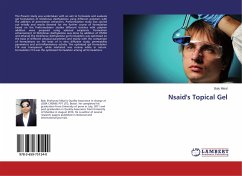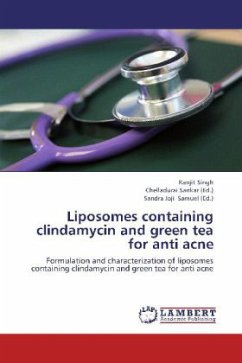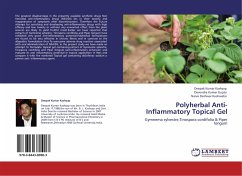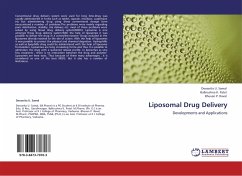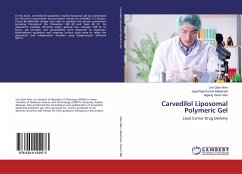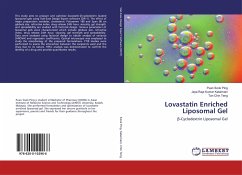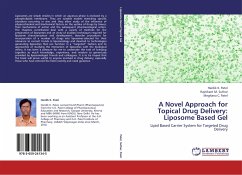Acne vulgaris is a common human skin disorder characterized by seborrhea, comedones, papules, pustules, nodules, and possibly scarring. Clindamycin, a lincosamide antibiotic, is most commonly for the treatment of acne as compared to other available treatment because it directly kills the bacteria which is associated with acne. But Clindamycin Hydrochloride suffers from a major drawback of having very low topical bioavailability of only 4-5%. So, a hypothesis was made that Clindamycin, if entrapped in liposomes can results in the improvement of topical bioavailability. With this hypothesis the research project work was carried out concerning the formulation and evaluation of Clindaycin Hydrochloride liposomes. This book tells you all the aspects and parameters considered for the research project work with their results. From the research work, it can be concluded that in future topical liposomal gel of Clindamycin Hydrochloride can be an effective treatment for acne vulgaris.
Bitte wählen Sie Ihr Anliegen aus.
Rechnungen
Retourenschein anfordern
Bestellstatus
Storno

